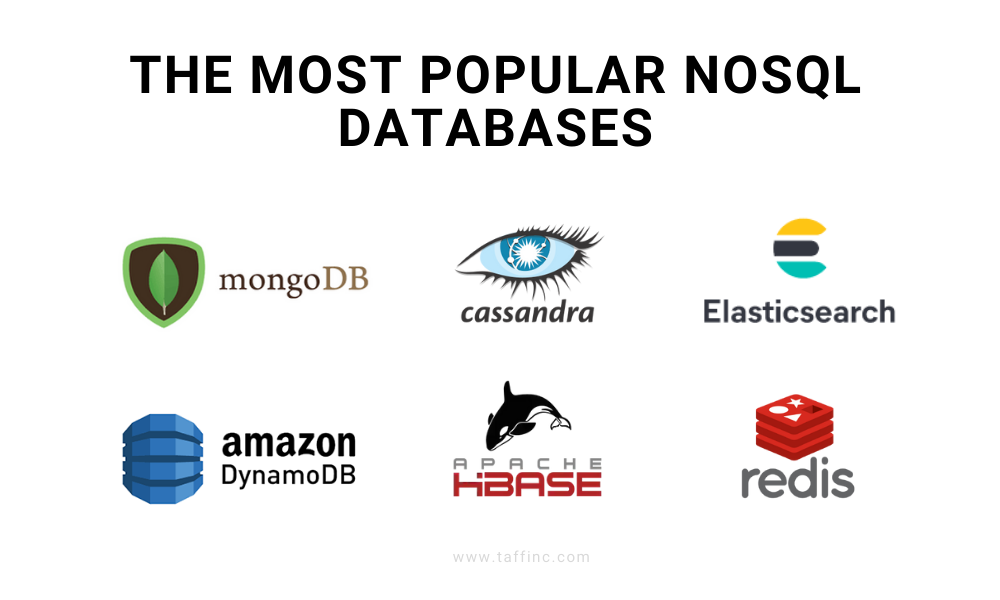Beyond “Fast and Simple” : 7 Enterprise Use Cases Where NoSQL Will Outperform SQL
NoSQL systems are distributed, non-relational databases designed for large-scale data storage and for parallel, high-performance data processing across a large number of commodity servers. They came to light because of a need to increase performance, agility and scale, and can support a wide set of use cases, including exploratory and predictive analytics in real-time.
NoSQL databases which were once used only by technology giants like Google, Facebook, etc have now gained immense popularity among all industries. NoSQL databases were primarily developed to handle impediments in structured databases.
What are the Benefits of NoSQL Databases?
1. NoSQL databases offer many benefits over relational databases. Let us first look at the advantages of NoSQL databases.
2. NoSQL databases support scale-out architecture and hence is a perfect fit for cloud computing environments.
3. NoSQL databases can handle large volumes of data at blazing speeds.
4. One can store structured, unstructured and semi-structured data in NoSQL databases.
5. NoSQL databases support easy updates to schema and adding new fields on the go. There is no need to define the data model initially.
6. NoSQL databases are loved by modern developers and offer rich support in various communities fostering development at pace.

7 Enterprise use cases where NoSQL will outperform SQL
Now let us look at various scenarios that favours NoSQL databases compared to SQL databases.
1. Personalization
Offering personalized user experience in mobile and web apps is to improve conversions. Superior personalized experience demands a large volume of data as personalization is based entirely on data. A relational database requires an expensive infrastructure to handle and manage the huge volume of data required for personalization, whereas a NoSQL database can scale on demand and handle large chunks of data seamlessly.
2. Real-time Experience
Most of the modern applications require fast and real-time data access to and from the server. Real-time data access is not easy with relational databases whereas NoSQL databases can offer a real-time experience with low latency.
3. Data Analytics
Traditionally, operational and analytical databases were kept as 2 separate environments. Applications used operational databases whereas business intelligence tools used analytical databases for reporting and analysis.
With NoSQL databases which offer real-time data access at express pace can support both applications and business intelligence tools at the same time. A mobile and web app can write and read data from the same NoSQL database and simultaneously a tool like Hadoop can access the database for big data analytics.
4. Content Management Systems
CMS have been in existence for many years now and have been totally dependent on structured databases that lacked speed and flexibility. With a NoSQL database, a CMS can store and read any type of data and present it to the customer at the time of interaction. Since there is no need to define the data model upfront, a NoSQL supported CMS can store and manage user generated content on the fly.
5. Cloud Computing
Though most of the cloud computing platforms support structured databases, there is a clear shift towards NoSQL databases. For any business that wishes to implement digital transformation, cloud computing is the best choice. The most preferred databases for cloud platforms are NoSQL databases and hence NoSQL databases is the go-to choice for modern cloud development.
6. Zero Downtime
There are many applications which cannot afford to have a downtime no matter how minor it might be. Applications powered by structured databases often suffer a downtime at the time of upgradation or migration. Unstructured databases can be upgraded without having any downtime thus enabling the business to have a zero compromise towards customer experience.
7. Customer 360° View
Customers expect a consistent experience on all the channels, and the enterprise always wants to provide the highest level of customer services to their customers. However, as the number of products and services, channels and business units grows, the fixed data model of relational databases forces enterprises to fragment customer data because different applications work with different customer data. NoSQL document databases have a flexible data model that enables many applications to access the same customer data as well as add new attributes without affecting other applications.
The Bottom Line
As the above use cases illustrate and strengthen the fact that NoSQL features like flexible data models, ease of delivery and maintenance, low latency and the ability to integrate structured, semi-structured and unstructured elements continues to make NoSQL a preferred choice.
The early adopters like Amazon, Netflix, Facebook and Twitter and NoSQL innovators continue to make a way for new and innovative solutions.
Wondering if a NoSQL database is right for your application, how to architect a new NoSQL solution or how to move your current RDBMS to a NoSQL alternative? Contact TAFF for a 15-minute “database discussion” to explore whether we can help.



